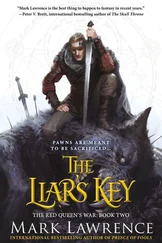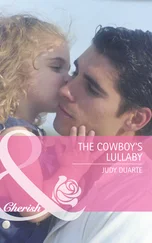1 ...7 8 9 11 12 13 ...18 “Some day I’ll actually say yes. Just to keep your self-confidence under control,” she said.
His smile was offhanded. “No, you won’t.”
Laugh lines etched his bronze skin. He leaned against the door frame, his gaze rakish.
Jo grabbed him by the collar of his Bay to Breakers T-shirt and yanked him through the doorway. She kicked the door closed and thrust him against the wall.
“Watch it. I can push your buttons and bring you to your knees”—she snapped her fingers—“like that.”
“Promise?”
She held him to the wall. “I haven’t seen you for twenty-four hours, and it’s your fault that twenty-four hours feels like a long time.”
He wrapped his arms around her waist. “My buttons. Yeah, I’m the one whose control panel is blowing up here.”
He kissed her.
Sometimes he seemed as still as a pool of water. Sometimes he seemed reserved to the point of invisibility. She knew that the surface reflected little of the turbulence beneath, that it hid his intensity and resolve. He was an illusionist, a master of emotional sleight of hand.
His cool served him perfectly as a PJ, a search and rescue expert for the Air National Guard. He came off as affable and reassuring. But sometimes, when he was challenged or threatened, his attitude changed, and Jo glimpsed the warrior he had been.
And was about to be again.
One day gone, eighty-seven left. Gabe had been called up to active duty. At the end of the summer, he and others from the 129th Rescue Wing had orders for a four-month deployment to Djibouti, to provide combat search and rescue support for the U.S. military’s Combined Joint Task Force–Horn of Africa. He’d be back at the end of January. After that he’d remain on active duty for another eight months, but thought it possible he would serve much of that time at the Wing’s headquarters, Moffett Field in Mountain View.
But as always when reservists were called up, Gabe’s life was getting blown to the wind. He wasn’t just a pararescueman; thanks to the G.I. Bill, he was also a graduate student at the University of San Francisco. Deployment was going to tear up his academic schedule. But his first priority was his ten-year-old daughter, Sophie. He was a single dad. His ex-girlfriend lived in the city but on the fringes of competence, and saw Sophie only twice a month. Gabe had gone to painful time and expense to modify his custody arrangement so that Sophie would live in San Francisco with his sister and her husband while he was deployed. Sophie wasn’t happy that he was going. But she knew it was his job. She’d been through it before.
Jo hadn’t. But, holding him, she set that aside. She tried to stop the ticking in her head.
He brushed her curls from her face. “You okay?”
“Once I saw Tina, I was great.”
His face looked sober. “It was only a close call. But I know that’s too close.”
She suppressed thoughts about any dangers involved in his deploying to the Horn of Africa. And she knew she was far more head over heels for this man than she could ever have imagined.
“What part of hell does your new case come from?” he said.
“I’m going to perform a psychological autopsy on Tasia McFarland. It seems I’m going to ride the tiger.”
His eyes widened. “Excited?”
She had to think about it a moment. “Yes.”
“Ready for the predators to come at you out of the tall grass?”
“Undoubtedly not.”
“You really are a thrill seeker, aren’t you?”
Sharp guy, Gabe Quintana. She put her hands on his shoulders. “I am. How long can you stay?”
He smiled and pulled her against him. And his cell phone rang.
Jo leaned back. He answered the call.
“Dave Rabin, what’s up?” he said, and within five seconds she knew that thrill seeking of a radically different kind was on his agenda.
“Sixty minutes. I’ll be there.” He flipped his phone off. “Merchant tanker five hundred miles off the coast, reports a fire in the engine room. They’re adrift and down at the stern. Multiple casualties.”
Jo reluctantly let him loose. A buzz seemed to radiate from him. He put a hand on her hip and kissed her again.
“Bring ‘em back,” she said. “Be safe.”
He ran down the steps toward his truck. She hung in the doorway and watched him go. She didn’t want to close the door, to turn back to Tasia McFarland and the unblinking certainties of death. She watched him go until he was out of sight.
NOEL MICHAEL PETTY THUDDED UP THE HOTEL STAIRS, SWEATY AND winded, cradling the artifact inside the fatigue jacket. The hallway was dank but empty. Petty rushed inside the hotel room, slammed the door, and leaned back against it, breathless. Nobody had followed. Nobody had even noticed. Not at the ballpark or anyplace along the route to the Tenderloin.
That’s because, when you hover like an angel, you become invisible.
Quick, latch the chain. Clear a space on the table. Shove aside the scissors and the news cuttings. Let the tabloid articles and glossy magazine photos flutter to the floor. Take a breath.
Carefully, ceremoniously, Petty pulled open the fatigue jacket and removed the artifact. It was a piece of turf from the baseball field, a lump of grass and earth about the diameter of a compact disc. Petty set it on the table and ran a hand across it, stroking the grass like a baby’s soft hair.
Victory is mine.
Stepping back, Petty pulled off the green watch cap and turned on the television. Tonight’s events were historic. It was vital not to miss a moment, not one beautiful second.
There—news. Images sparkled on the screen, familiar and thrilling. The smoke so black, the blood so messy, Tasia’s hair so thick, fanning around her head in a gold comet’s tail. People screaming, fleeing from her body. Tasia had terrified the crowd, dying like that. What a cow.
Bursting through the crowd came Searle Lecroix. Petty grimaced.
Too late, Searle. She’s gone. She can no longer suck the love from a man’s bones. We’re free.
Free . Petty glanced at the artifact. It was a memento of deliverance, like a chunk of the Berlin Wall.
Lecroix shoved his way past the ravenous onlookers on the field, gawky strangers who wanted a piece of Tasia McFarland, who wanted a chance to say, I was there . But they were only about celebrity and sentiment. They would never understand. Tasia’s death was not an accident. It was a triumph.
On-screen, Lecroix dropped to his knees beside Tasia’s body. Petty cringed.
“Searle, you fool.”
The death of a cow should not affect a man so. It was a painful sight. It diminished the victory.
If you believed the gossip, Tasia had lured Searle Lecroix into her bed. But he couldn’t have known her. He couldn’t have given himself to her and received back in turn. Not from an unhinged, half-lunatic fame-whore who had fucked the president to get where she was.
Lecroix gripped Tasia’s hand. He begged, “Help her.”
Smarting, Petty turned away. But Tasia’s face followed. She stared down from the walls of the hotel room. Hundreds of photos, her beautiful face, her filthy gaze, her dark inner light, staring, knowing .
Petty stared back. “But you didn’t know what was coming. You refused to listen.”
Tasia had snubbed NMP. Then ignored NMP. She’d had the gall to rebuke and disregard NMP.
A smile squeezed Petty’s lips, full of pain.
Stop that. You are not a fat, weak-kneed fan. You are a righteous guardian and protector of the truth and the Good Ones. Petty scratched an armpit.
The hotel room smelled stale and fuggy, like a cheap costume for a stage play. But that’s what this Tenderloin dive was—a disguise. Nobody would look here for a hovering angel.
Читать дальше












